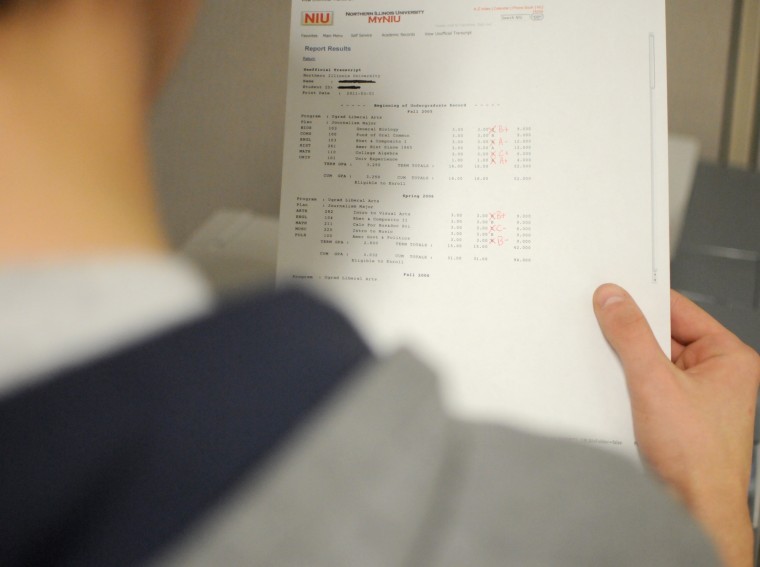Students react to the plus/minus grading system
March 1, 2011
DeKALB | Students have mixed feelings about the implementation of the proposed plus/minus grading system.
“I’m on the fence about it because last semester it would have benefited me, but now this semester I’m doing well,” said Jasmine Crespo, freshman sociology major.
Last semester, Crespo said she received a grade in a class that would have probably been counted as a minus of a higher grade if the new grading system had been used, which would have given her a higher GPA for the semester.
Biology doctorate student Burcu Carlon also said she has mixed feelings about the change.
Carlon said the proposed grading system would be good in one sense because it allows instructors to distinguish accomplishments of students.
Carlon, however, is still unsure how instructors would break down the percentages assigned to each grade if the change occured.
While other students like Phillip Wilson, senior industrial engineering major, said although the proposed change wouldn’t affect him since he graduates in December, he thinks the grading system shouldn’t change.
“I don’t really prefer it,” Wilson said. “It could be beneficial if you’re on the plus side and hurt you if you’re on the minus side.”
Wilson said he went to a high school for a year that had similar grading to the proposed plus/minus system and didn’t like it as much as the other high school he attended that had a straight grading scale.
The Student Association Senate approved the inclusion of a referendum to gauge student support of the grading system in the SA executive election ballot during its Sunday meeting. The elections will be held on March 29 and 30.
Once the ballots are tabulated, the results of the referendum would be presented at the meeting when the University Council votes on whether to approve the grading system, said Josh Venaas, SA chief of staff.
Venaas met with Vice Provost Earl “Gip” Seaver last week about ways to get student feedback.
Seaver suggested students talk to their student representatives who serve on the Admissions Policies and Academic Standards Committee, Undergraduate Coordinating Council and the Graduate Council as well as representatives from their colleges and SA leadership. He also suggested students write letters to the editor to the Northern Star and e-mail him with feedback at [email protected] that he could pass along to the committees.
Venaas said the SA is working on plans to seek feedback from students in different avenues. Some major goals the SA has for gathering student input include contacting student groups, creating an informational web page on the SA’s site explaining the proposed system, hosting an event for student discussion, creating a handout about the proposed change and sending out a mass e-mail to students informing them about this issue.
“It was very important for us to get student feedback on this issue,” Venaas said. “There wasn’t a whole lot of student feedback up to this point and with something so big that the faculty can vote on it and the committees that it goes through, there’s not a whole lot of student representation, so we felt it was necessary to get the students’ voices heard in any means that we can now until when they vote on it.”







